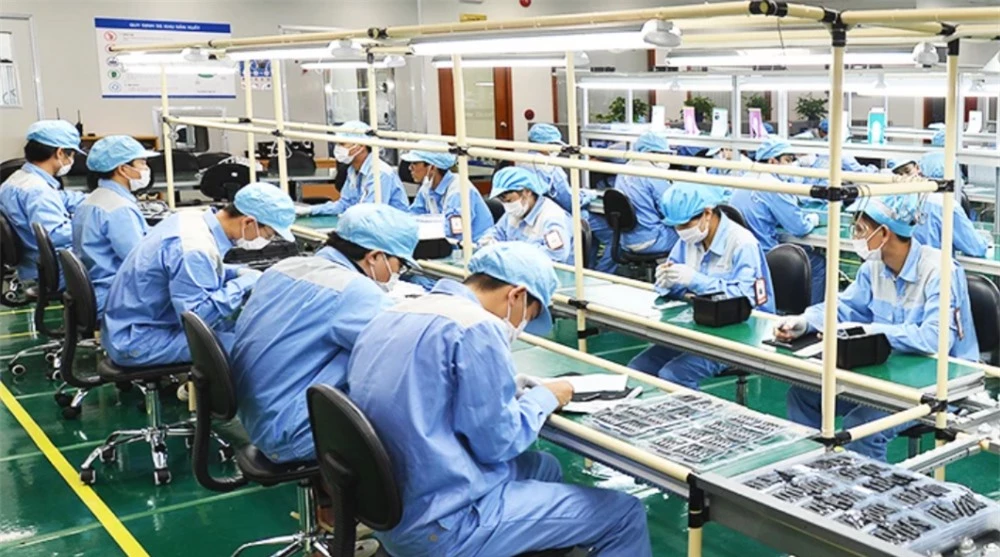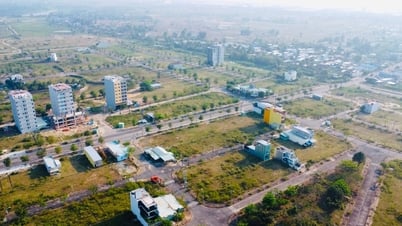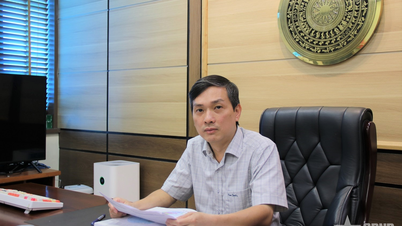Theo dự báo của Hiệp hội Công nghiệp Bán dẫn Đông Nam Á (SEMI SEA), thị trường bán dẫn Việt Nam có thể tăng trưởng hơn 6% trong giai đoạn 2022-2027.
Với nhiều lợi thế cạnh tranh, bao gồm sở hữu các mỏ đất hiếm trữ lượng lớnViệt Nam dần trở thành điểm đến hấp dẫn cho chuỗi sản xuất chip toàn trình với khoản đầu tư hàng tỷ USD từ các công ty Mỹ, Hàn Quốc, mang lại cơ hội cho nhân lực ngành này.
Quy mô thị trường lớn khiến nhu cầu về nhân sự cũng bùng nổ. Theo WSTS, đến năm 2030 cần khoảng 1 triệu lao động cho tất cả các khâu thiết kế, sản xuất, lắp ráp, đóng gói, kiểm thử chip. Dự báo ngành Công nghiệp bán dẫn ở Mỹ sẽ thiếu hụt từ 70.000 – 90.000 lao động trong những năm tới. Hiệp hội ngành chất bán dẫn của Nhật Bản cũng dự đoán, trong một thập kỷ tới, mỗi năm ngành này sẽ thiếu hụt khoảng 1.000 nhân lực chất lượng cao. Trong khi đó, cuộc “chạy đua” xây dựng nhà máy bán dẫn tại Nhật Bản đòi hỏi nhiều lao động lành nghề hơn.

Tại hội thảo Phát triển nguồn nhân lực chất lượng cao ngành công nghiệp chip bán dẫn từ các cơ sở giáo dục đại học Việt Nam do Bộ Giáo dục và Đào tạo tổ chức, các chuyên gia kinh tế dự báo trong khoảng 5 năm tới ngành bán dẫn tại Việt Nam cần khoảng 20.000 người; 10 năm tới là 50.000 người trình độ đại học trở lên. Trong khi số nhân lực thiết kế vi mạch hiện khoảng 5.000 người.
Trên một số trang tin tuyển dụng công khai, vị trí Kỹ sư bán dẫn với kinh nghiệm trên 5 năm, mức lương được hứa hẹn trên 1.000 USD/tháng. Công ty TNHH Neweb Việt Nam (doanh nghiệp có vốn đầu tư của Đài Loan) tại Khu công nghiệp Duy Tiên – Hà Nam đăng tuyển vị trí Kỹ sư Band ẫn với mức lương trên 1.000 USD.
Tại Mỹ, mức lương trung bình hàng của kỹ sư bán dẫn lên tới gần 8.500 USD/tháng. Trong khi đó, nhà sản xuất chip Tokyo Electron của Nhật Bản trả gần 305.000 yên (gần 2.200 USD/tháng) cho sinh viên mới ra trường có thể làm việc ngay.
Tại Đài Loan (Trung Quốc), thống kê của Cơ quan Giáo dục Đài Loan cho thấy kỹ sư bán dẫn có bằng cử nhân Cnhận lương khởi điểm khoảng 38.000-42.000 Đài tệ (25-33 triệu đồng). Cùng vị trí này nhưng có bằng thạc sĩ, người lao động có thể nhận 33-37 triệu đồng, hoặc 46-55 triệu đồng nếu có bằng tiến sĩ.

Số liệu của ộng đồng Vi mạch Việt Nam lại cho biết, trung bình lương sau thuế trong năm đầu đi làm của kỹ sư thiết kế chip là gần 220 triệu đồng (hơn 18 triệu/tháng) và sẽ tăng dần theo từng năm. Với 5 năm kinh nghiệm, người làm công việc này có thu nhập trên 330 triệu đồng một năm. Con số này tăng dần lên hơn 800 và 1,3 tỷ đồng nếu có 15-20 năm kinh nghiệm.
Hai năm gần đây, Việt Nam đã trở thành điểm đến hấp dẫn cho chuỗi sản xuất chip toàn trình với khoản đầu tư hàng tỷ USD từ các công ty Mỹ và Hàn Quốc. Amkor Technology – Tập đoàn công nghiệp bán dẫn lớn của thế giới có trụ sở tại Arizona đã khánh thành nhà máy tại Bắc Ninh với tổng vốn đầu tư 1,6 tỷ USD. Samsung cũng có kế hoạch sản xuất linh kiện bán dẫn tại Việt Nam. Hana Micron Vina (Hàn Quốc) khánh thành dự án nhà máy sản xuất chất bán dẫn tại Bắc Giang với đăng ký đầu tư gần 600 triệu USD…
Sinh viên ngành Thiết kế vi mạch bán dẫn Trường ĐH FPT có cơ hội được học bổng lên đến 100%.Việt Nam còn là điểm đến tìm kiếm nhân sự cho nhiều quốc gia đang cần nguồn nhân lực ngành bán dẫn. Cùng lúc đó, nhiều trường đại học, cơ sở đào tạo tại Việt Nam đã mở chuyên ngành đào tạo về bán dẫn hoặc mở khóa học chuyển đổi từ các ngành có liên quan sang làm việc chuyên sâu. Đại học FPT tuyển 1.000 chỉ tiêu Thiết kế Vi mạch bán dẫn và xem xét cấp học bổng lên đến 100% chương trình học cho tất cả thí sinh đăng ký chuyên ngành này. Đại học Bách khoa Hà Nội, hai đại học Quốc gia, Đại học Đà Nẵng, Trường Đại học Cần Thơ, Trường Đại học Phenikaa, Đại học Khoa học và Công nghệ Hà Nội… cũng mở ngành mới và đưa ra nhiều chính sách thu hút sinh viên theo học.
Theo Sở hữu trí tuệ và Sáng tạo











































































































Bình luận (0)